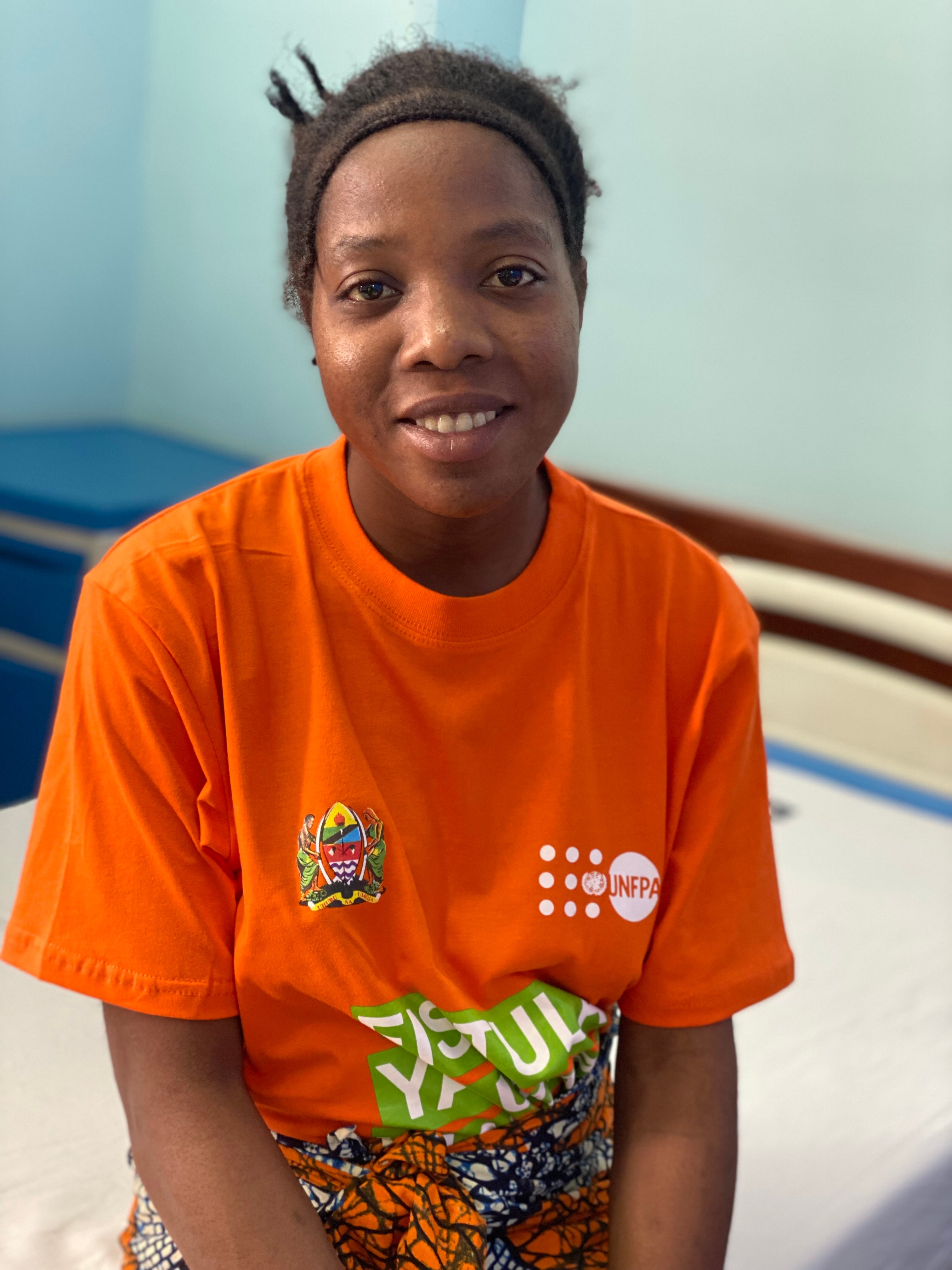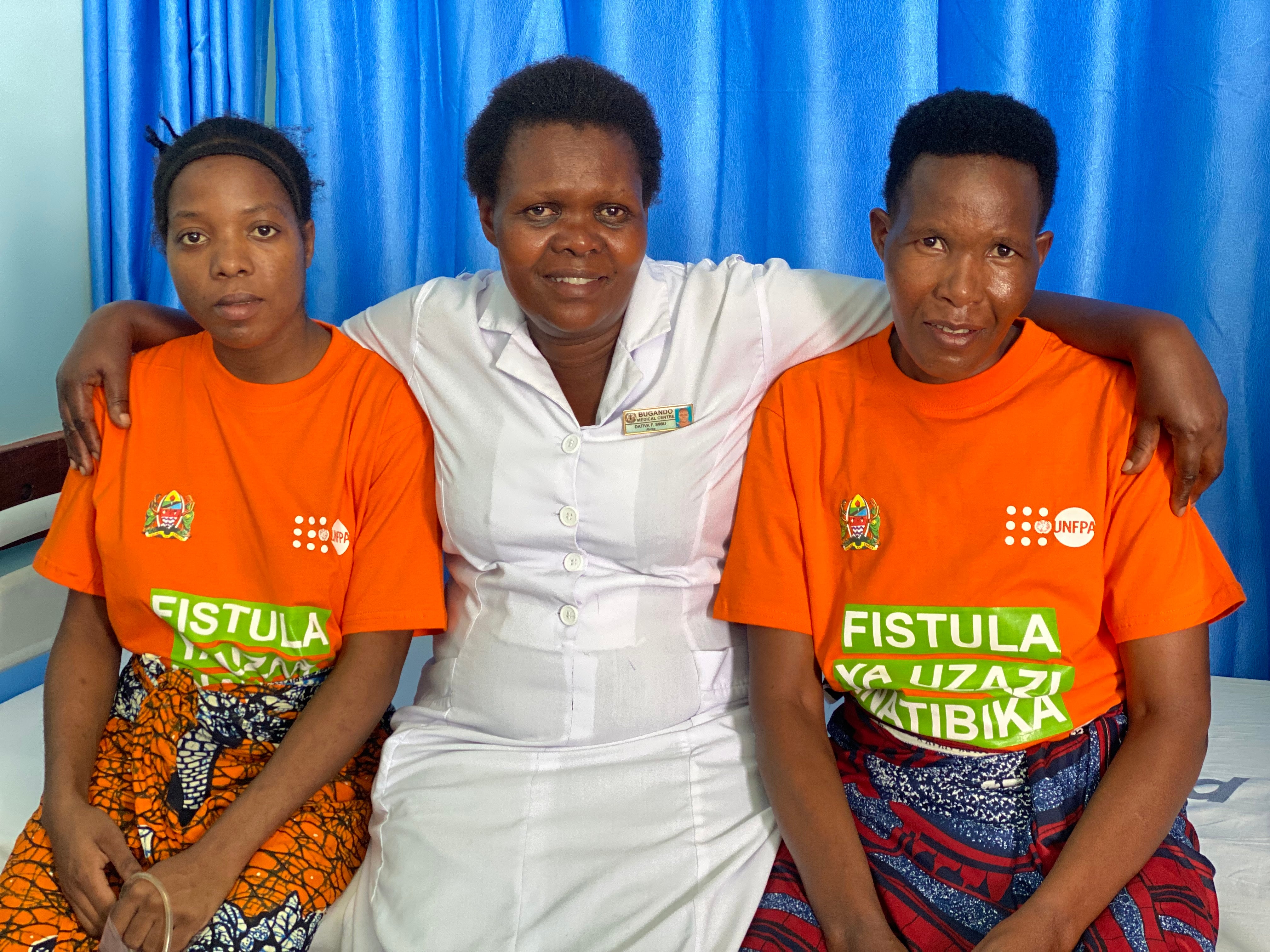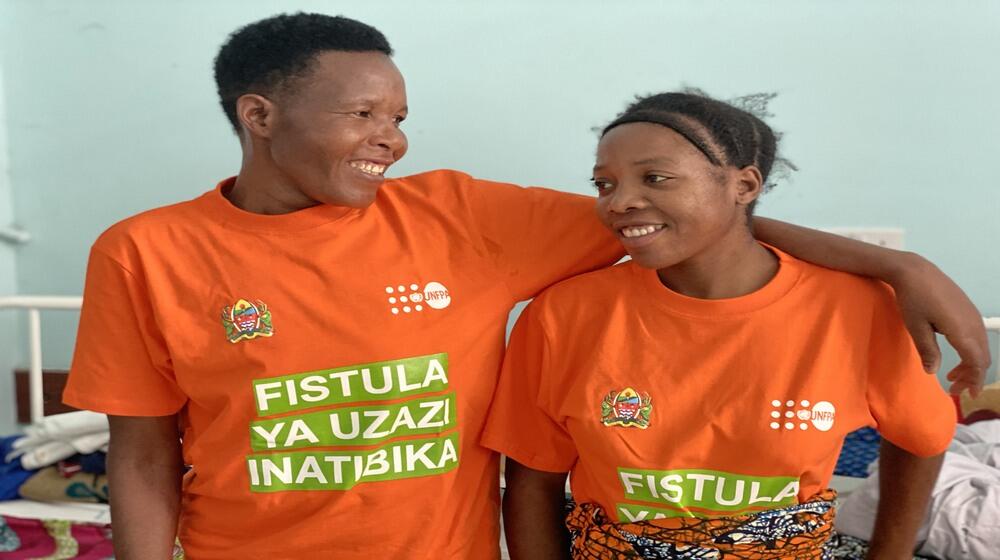Eliminating fistula is a key element of “leaving no one behind” and the world risks failing to achieve the SDG targets if there is still a woman/girl left in the world who is suffering from fistula and being left behind.
On 23 May every year, UNFPA joins other many countries around the world to mark the International Day to End Obstetric Fistula. On this day we reflect upon progress made, raise awareness, promote actions towards treating and preventing fistula and generate new political and financial support for the Campaign to End Fistula, which is urgently needed to address this severely neglected health and human rights tragedy.
“I love to help these suffering women. My own experience with fistula allows me to give advice and comfort to those living with the same condition as me. My story can reassure them that they too can be cured”.
Her story starts when she was 14. Maliwaza married her cousin and to the joy of her family, she soon became pregnant. After 12 hours of labor, Maliwaza was referred to a district hospital where the doctor preformed a C-section. Her baby boy was dead. Maliwaza said she never even had a chance to name him. On the 3rd day after her surgery, Maliwaza noticed she was leaking but didn’t realize it was urine. The next day, a doctor told her she had an obstetric fistula.
500,000 women and girls just like Maliwaza are estimated to be living with fistula worldwide, with new cases occurring annually, according to a recent study by Johns Hopkins University (in collaboration with UNFPA) on global and country fistula prevalence and incidence. (2020 UNSG Report) This is an indicator of poor quality of care and its occurrence implies a failure of health systems to meet the needs of affected women and girls. It is a tragic sign of prevailing global social injustice and a violation of human rights as reflected by broader health inequities and healthcare system constraints. The gaps in the provision of quality care coupled with wider challenges facing women and girls, such as poverty, gender and socioeconomic inequality, lack of schooling, child marriage and early childbearing impede the well-being of and opportunities for women and girls. The intersection of gender with other forms of discrimination faced by women and girls at risk of or living with fistula based on their health status, disability, marital status, education, and socio-economic status often pushes them further behind.

Maliwaza suffered with fistula for 5 years and 3 months. “I lived a miserable life. I thought that life was all over for me, just ruined”. Maliwaza had two failed surgeries to correct her fistula before hearing on the radio UNFPA Tanzania Media campaign advocating about fistula treatment. It took 6 surgeries, but finally, Maliwaza was dry again!
The 22-year-old received physical therapy, education on caring for fistula and enrolled in our reintegration programs because no one in her village was making embroidered and knitted goods, but Maliwaza didn’t go back to her village after she recovered. Maliwaza’s husband still refuses to take her back home.
Fistula is preventable when women and girls have timely access to quality comprehensive sexual and reproductive health services and obstetric care. It can also be avoided by delaying the age at first pregnancy, cessation of child marriage, empowering and educating women and girls, and addressing social and economic factors that negatively affect women and girls.

Community empowerment is key to addressing the social, cultural, political, and economic determinants that underpin health, seeks to build partnerships with other sectors, and contributes to the successful reintegration of fistula survivors.
Today, we call for greater investments to increase the number of qualified midwives to care for all women and new-born. We should also respond to obstetric emergencies, for example renovation of rural health facilities, procurement of equipment like delivery kits and baby incubators, and lifesaving medicines.
Delaying early pregnancies, spacing births, and limiting the number of pregnancies can be achieved through a wide range of family planning services. We need to promote girls’ education and gender equality to ensure that women can freely make decisions about their reproductive lives. Community empowerment is key to addressing the social, cultural, political, and economic determinants that underpin health, seeks to build partnerships with other sectors and contributes to successful reintegration of fistula survivors.
“Change starts with the community! Community empowerment and participation is key to addressing the determinants of maternal mortality and morbidity and ensure fistula prevention and treatment services by women, girls, their families and communities. Mark Bryan Schreiner, Representative, UNFPA United Republic of Tanzania
Please join us in standing with the world’s most marginalized women and girls. Together, we can mobilize the support and commitment needed to transform their lives into stories of hope and healing and rid the world of fistula once and for all”.
UNFPA Tanzania Supports in Ending Obstetric Fistula:
End Fistula now: Invest in Quality Healthcare, Empower Communities
UNFPA Tanzania supports various equipment to enable safe delivery care and to provide maternal and child care easily in renovated health facilities. Capacity building of midwives to provide emergency maternal and child care (EmONC), including training them in Infection Prevention and Control, provision of SRH and GBV services across the regions of Mara, Mwanza, Geita, Shinyanga, Dar-es-salaam, and Dodoma. UNFPA supports procurement of skills training equipment and books at the Newala Nursing and Midwifery College. Supported Comprehensive Midwifery Assessment in Tanzania that will serve as a basis for developing Midwifery Improvement Framework. Facilitated the review of nursing and midwifery policy documents and those for improving nursing and midwifery education. These include: Support for the review of the Scope of Practice for Nurses and Midwives. Review of the Essential Midwifery Competencies for nurses & midwives. Development of Higher Diploma Midwifery Curriculum (NTA Level 7). This will enable direct training of midwives for the first time in Tanzania. Review of the Midwifery Curriculum (NTA Levels 4,5 and 6).



